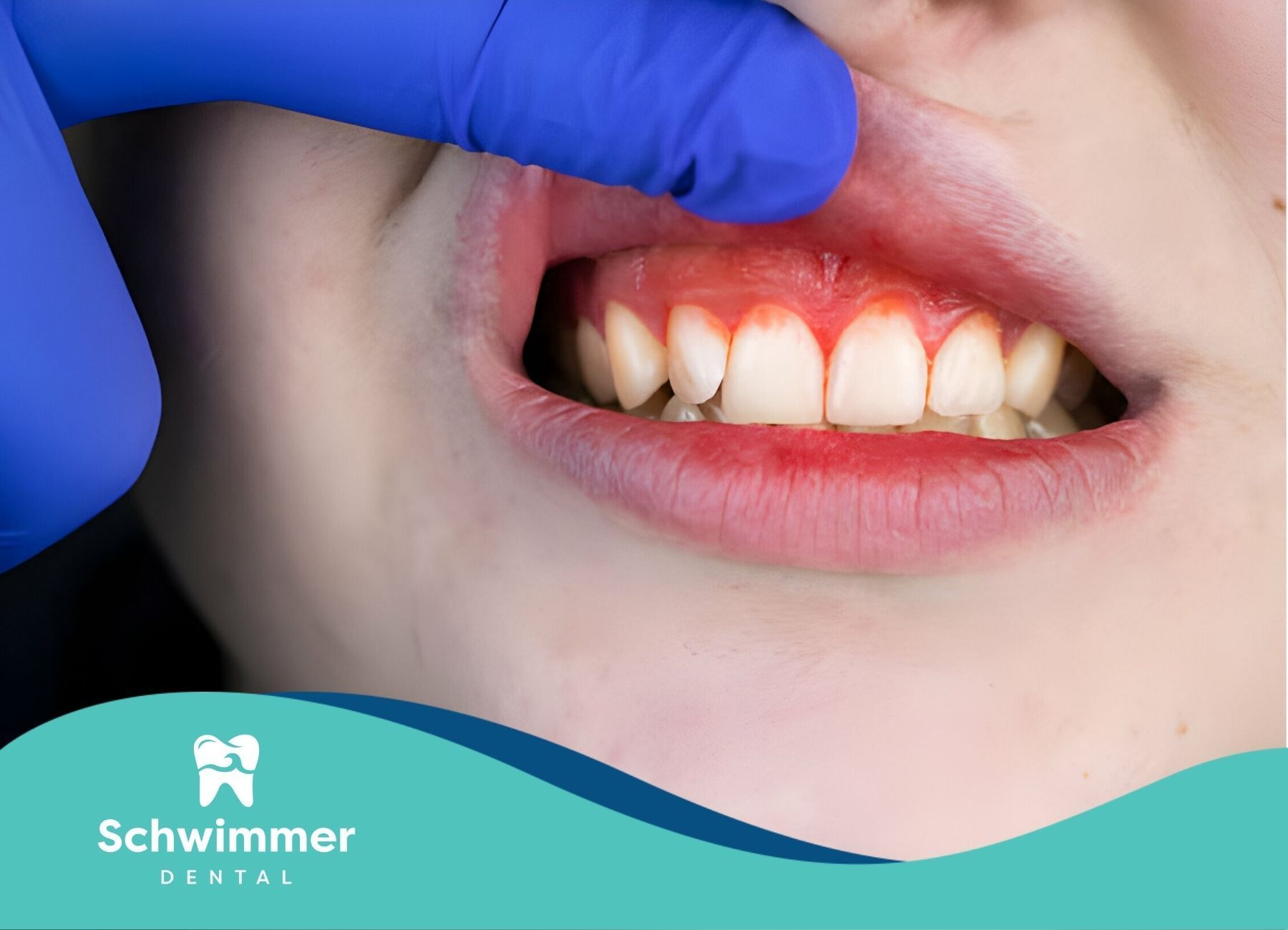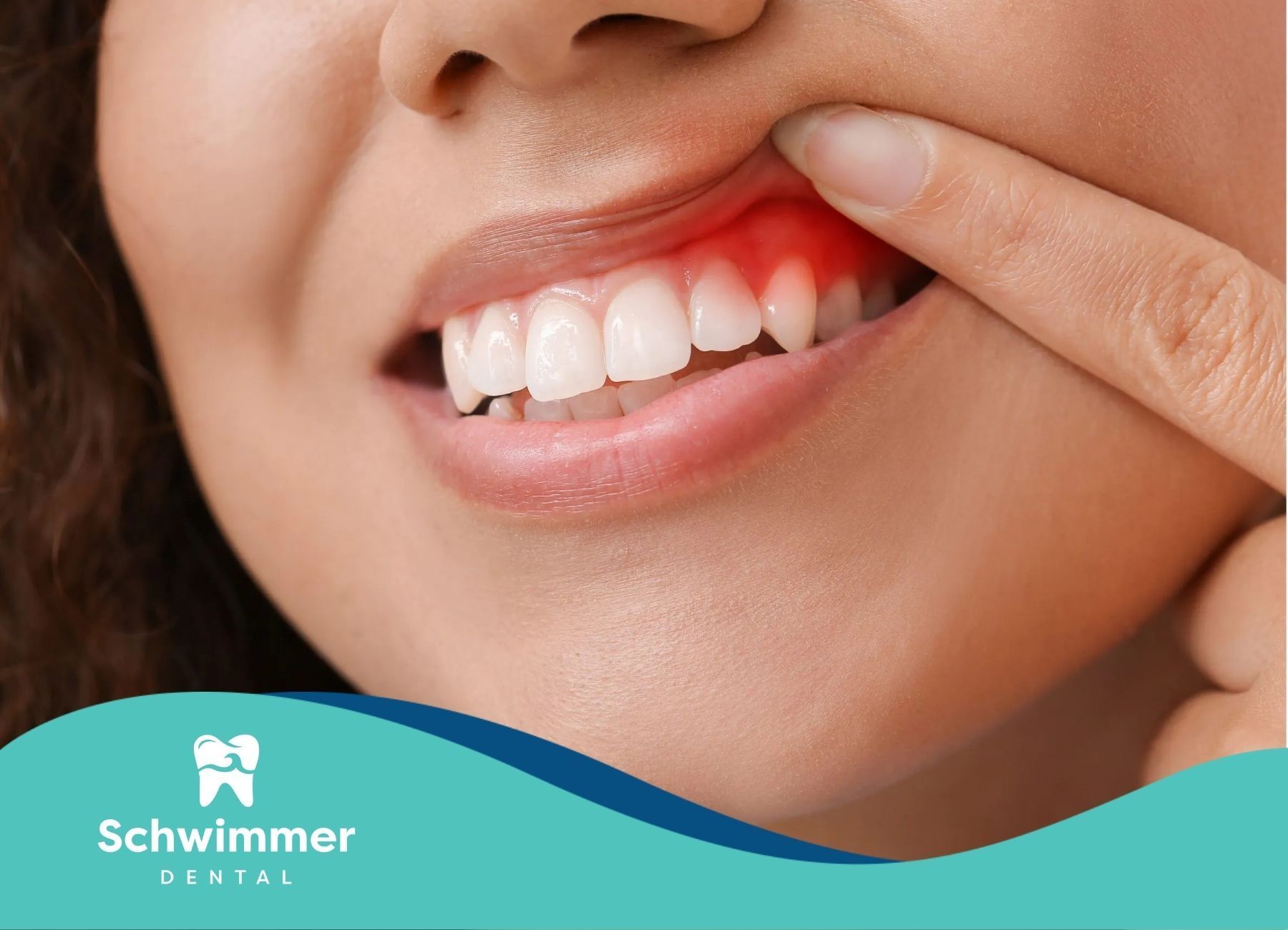Have an appointment? Complete the Intake Form
Orthodontist vs. General Dentist: Which One Do You Need?
Taking care of your oral health is paramount, and understanding the roles of different dental professionals is key to a healthy smile. While general dentists provide comprehensive oral health care, orthodontists specialize in orthodontic treatment. This blog post will explore the differences between general dentists and orthodontists, enabling you to determine which professional best suits your needs.
Understanding the Roles: General Dentist vs. Orthodontist
In the realm of dentistry, both general dentists and orthodontists play important roles in keeping your smile healthy. Essentially, a general dentist is your primary oral healthcare provider, taking care of routine checkups, cleanings, fillings, and addressing various dental issues. On the other hand, an orthodontist is a dental specialist focused on diagnosing, correcting, and preventing irregularities in teeth and jaw alignment.
While general dentists can address minor orthodontic concerns, complex cases often require the expertise of an orthodontist.
Services Provided by a General Dentist
A general dentist is your primary oral healthcare provider, focusing on overall oral health maintenance and the treatment of common dental issues. Their services include:
- Preventive care: This encompasses regular checkups, cleanings, fluoride treatments, and dental sealants to prevent tooth decay and gum disease.
- Restorative procedures: General dentists treat dental issues such as cavities, damaged teeth, and missing teeth. This involves fillings, crowns, bridges, and dentures.
- Oral surgery: Some general dentists perform minor oral surgery procedures such as tooth extractions and wisdom teeth removal.
- Emergency dental care: They address urgent situations like toothaches, broken teeth, and infections.
By providing comprehensive general dentistry services, your dentist ensures your oral health remains in optimal condition throughout life.
Core Responsibilities of an Orthodontist
Orthodontists specialize in orthodontic care, focusing on the diagnosis, prevention, and treatment of misaligned teeth and jaws. They are experts in creating beautiful smiles and improving oral health through:
- Bite correction: Orthodontists address issues such as overbites, underbites, crossbites, and open bites, ensuring proper jaw alignment and function.
- Teeth straightening: Employing various appliances, including traditional braces, clear aligners (like Invisalign), and retainers, orthodontists move teeth into their ideal positions.
- Jaw development guidance: For children and adolescents, orthodontists monitor jaw growth and utilize appliances to guide proper development.
Through specialized orthodontic interventions, orthodontists improve the appearance, function, and longevity of your smile.
Educational Pathways and Specializations
Both general dentists and orthodontists require rigorous education and training, beginning with a four-year dental school program. However, the path diverges when it comes to specialization. Aspiring general practitioners enter the workforce after earning their DDS or DMD degree and successfully passing licensing exams.
Becoming an orthodontist necessitates further specialization achieved through an orthodontic residency program.
Training Requirements for General Dentists
To become a licensed general dentist, aspiring dental professionals must complete:
- Undergraduate degree: While not mandatory, most dental schools prefer applicants with a bachelor's degree.
- Dental School Admission Test (DAT): This standardized exam assesses a candidate's scientific knowledge, perceptual ability, and reasoning skills.
- Four years of dental school: This intensive program covers subjects like anatomy, physiology, biochemistry, oral pathology, and various dental procedures, culminating in a Doctor of Dental Surgery (DDS) or Doctor of Dental Medicine (DMD) degree.
- State licensing exams: These exams, specific to the state where the dentist wishes to practice, ensure competency and adherence to professional standards.
After completing these requirements and obtaining licensure, dentists can legally practice general dentistry.
Advanced Orthodontic Training Explained
Following dental school, aspiring orthodontists embark on a specialized journey requiring:
- Orthodontic residency: This competitive program, typically lasting two to three years, provides in-depth training in diagnosing, treating, and preventing dental and facial irregularities. Residents gain extensive clinical experience under the guidance of experienced orthodontists.
- Board certification (optional): While not mandatory, many orthodontists pursue board certification through the American Board of Orthodontics, demonstrating their commitment to excellence and adherence to rigorous standards.
This rigorous additional education equips orthodontists with the specialized knowledge and skills to deliver comprehensive orthodontic care.
Choosing Between a Dentist and an Orthodontist
Selecting the right dental professional hinges on your specific needs. For routine dental care, such as checkups, cleanings, or fillings, a general dentist is your go-to professional. However, suppose you require orthodontic treatment like braces or aligners for crooked teeth, bite correction, or jaw alignment. In that case, an orthodontist is the specialist to consult.
In essence, general dentists are your partners in maintaining overall oral health, while orthodontists specialize in creating beautifully aligned smiles.
Common Dental Issues and the Right Specialist to Consult
Navigating the world of dental care can be tricky, especially when determining which type of professional to see for specific issues. Here's a simplified guide:
- General Dentist: This is your primary oral healthcare provider. For common dental concerns like:
- Tooth decay and cavities: Dentists provide fillings, crowns, or root canals as needed.
- Gum disease: They can offer treatments ranging from deep cleanings to gum surgery.
- Tooth extractions: Dentists are equipped to handle straightforward extractions.
- Crowns and bridges: These restorations fall under the purview of a general dentist.
- Orthodontist: If you experience these issues, your dentist might refer you to an orthodontist:
- Crooked teeth: Orthodontists specialize in aligning teeth using various methods.
- Bite problems: Overbites, underbites, or crossbites are best addressed by these specialists.
- Jaw misalignment: Orthodontists correct jaw alignment issues impacting your bite and facial structure.
Remember, your dentist can always guide you toward the right specialist if needed.
Cases When You Definitely Need an Orthodontist
While general dentists are proficient in various dental procedures, certain conditions warrant the expertise of an orthodontist. You should seek orthodontic consultation if you experience:
- Severe malocclusion: When your bite is significantly misaligned, causing difficulty chewing, speaking, or closing your mouth properly, orthodontic intervention is necessary.
- Crowding or spacing issues: Overlapping, rotated, or widely spaced teeth not only affect aesthetics but also oral health. Orthodontic treatment can address these problems.
- Jaw growth discrepancies: Early detection of jaw discrepancies in children and adolescents allows orthodontists to guide proper jaw development, potentially preventing future complications.
- Desire for orthodontic treatment: Whether traditional braces or clear aligners like Invisalign, seeking orthodontic consultation is crucial to determine the most suitable treatment option.
Addressing these concerns with an orthodontist ensures optimal treatment outcomes and a healthier, more confident smile.
Conclusion
In conclusion, understanding whether you need an orthodontist or a general dentist is essential for your oral health. While general dentists focus on overall dental health and preventive care, orthodontists specialize in correcting teeth alignment and jaw issues. Your specific dental needs will determine which specialist to consult. Choosing between a general dentist and an orthodontist depends on your specific dental needs. If you're dealing with issues like misaligned teeth or bite problems, searching for orthodontists near me can connect you with specialists trained to correct these concerns through braces or aligners.
Schwimmer Dental in New Jersey offers the best of both worlds—comprehensive general dentistry and expert referrals for orthodontic care when needed. Their experienced team takes the time to evaluate your unique dental needs and guide you toward the right path for your healthiest, most confident smile. Not sure which type of care is right for you? Schedule a visit with Schwimmer Dental today and get personalized answers from a team that puts your smile first!
Frequently Asked Questions
What is the main difference between a dentist and an orthodontist?
A general dentist is a primary oral healthcare provider, while an orthodontist is a dental specialty focused on correcting misaligned teeth and jaws. Orthodontists undergo additional training after dental school to specialize in this field.
Can a general dentist provide orthodontic treatment?
Some general dentists offer basic orthodontic services, but their scope is limited. For complex cases requiring braces, clear aligners, or jaw alignment correction, a referral to an orthodontist is recommended.
When should I see an orthodontist instead of a dentist?
You should see an orthodontist if you experience issues like crooked teeth, bite problems (overbite, underbite, crossbite), jaw pain, or difficulty chewing or speaking properly due to orthodontic issues.
Are the treatments offered by dentists and orthodontists covered by insurance in the same way?
Insurance coverage varies depending on the policy and provider. Generally, routine dental care is covered more extensively than orthodontic treatment. It's best to contact your insurance provider to understand your specific plan's coverage for dental and orthodontic services.
How often should I visit an orthodontist during treatment?
Describe the item or answer the question so that site visitors who are interested get more information. You can emphasize this text with bullets, italics or bold, and add links.
Sources:
- https://www.gdc-uk.org/
- https://www.webmd.com/a-to-z-guides/what-is-an-orthodontist
- https://www.bupa.co.uk/dental/dental-care/treatments/orthodontics/types-of-braces/cosmetic-teeth-straightening
- https://pmc.ncbi.nlm.nih.gov/articles/PMC7498344/
- https://www.ada.org/education/testing/exams/dental-admission-test-dat
- https://study.unimelb.edu.au/find/courses/graduate/doctor-of-dental-surgery/
- https://www.sydney.edu.au/courses/courses/pc/doctor-of-dental-medicine0.html
Need Assistance? We’re Here to Help
We are dedicated to enhancing your dental health and well-being.
We provide personalized dental care solutions for a confident, healthy smile.
Contact us today for Professional Dental Care.

Our caring staff will help you feel relaxed and comfortable in our state of the art office. We respect your time and pledge to deliver prompt service, backed by the latest knowledge, techniques, and technology.
Email: Office@schwimmerdental.com
Tel: (848) 294-2385
Fax: (732) 899-3347
Address: 1115 Arnold Ave,
Point Pleasant, NJ, 08742
Schwimmer Dental – Website by CWS


